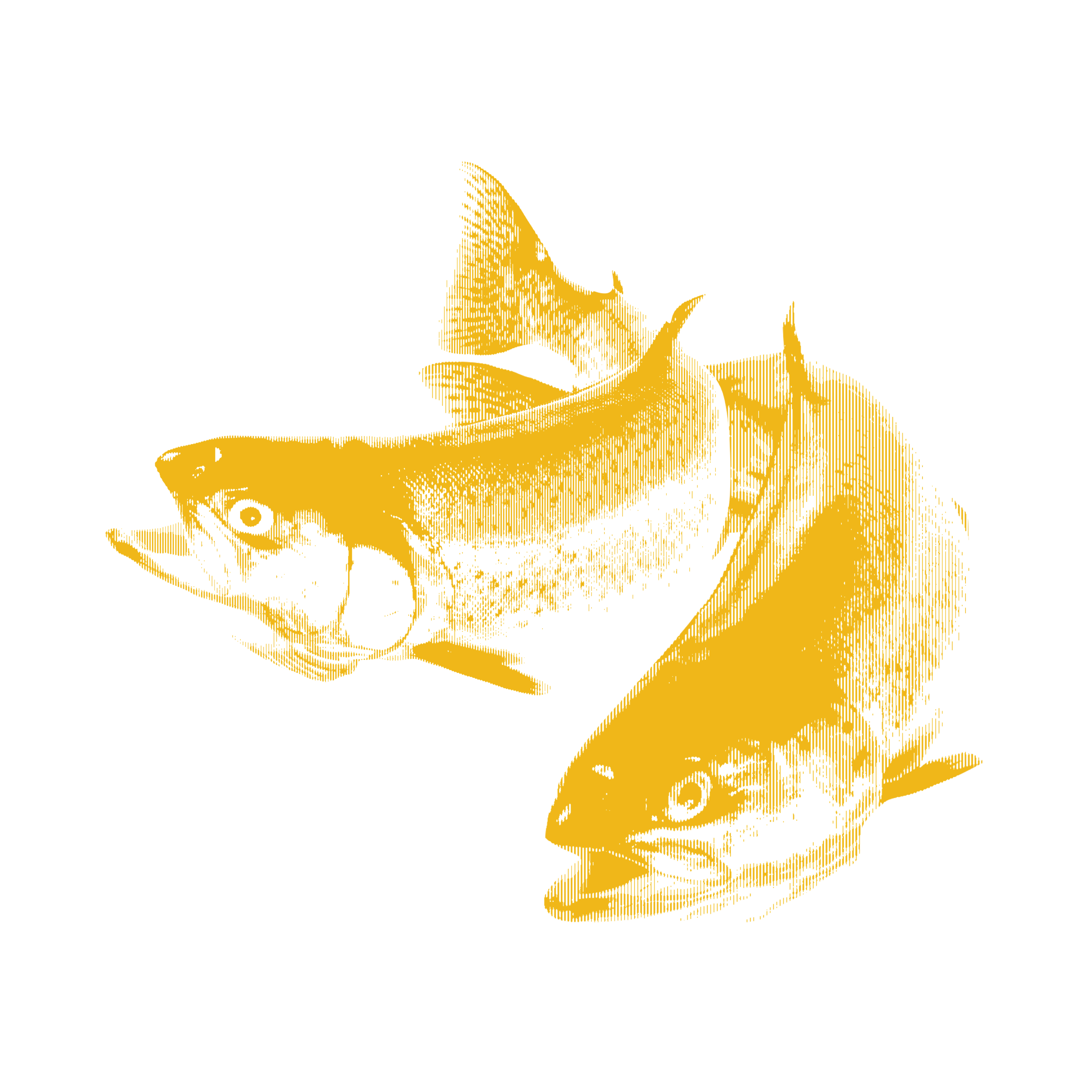In recent decades, working aggressively to expand its might, China has transformed itself into the world’s seafood superpower. This pre-eminence has come at a grave human and environmental cost. Part Four: Preventing abuses by tracing seafood from bait to plate proves difficult.
No sooner had US President Joe Biden issued an executive order in March 2022 prohibiting the import of Russian seafood, an effort aimed at depriving billions of dollars that might go towards Putin’s war in Ukraine, than members of Congress said the ban was unenforceable. US importers often do not know where their fish is actually caught, and trade data indicate that nearly a third of wild-caught seafood imported and labelled as being from China is actually pulled from Russian waters.
The embarrassing setback highlighted the opaque nature of the world’s seafood supply chains and has since spurred calls from American legislators, ocean conservationists, consumer advocates and human rights organisations to require US importers to track their seafood from bait to plate to ensure it is not tied to labour and environmental crimes or violations of sanctions on “pariah” states like North Korea and Iran.

As a nonprofit journalism organization, we depend on your support to fund more than 170 reporting projects every year on critical global and local issues. Donate any amount today to become a Pulitzer Center Champion and receive exclusive benefits!
Since the Russian seafood import ban took effect in June 2022, at least 31 Chinese squid ships have fished in Russian waters, including several owned by companies shipping seafood to the US and the European Union, according to satellite data and export records.
China catches, processes and exports the vast majority of the planet’s seafood. It has a distant-water fleet that is more than double the size of its next competitor. More than 70% of the seafood landed by this fleet, measured by weight, is squid.
Ranked as the world’s worst purveyor of illegal and unregulated fishing and highly prone to using forced labour, this fleet has been tied to myriad crimes, including cases of raiding Argentinian waters, routinely turning off their transponders in violation of Chinese law, illegally fishing in North Korean waters in violation of UN sanctions, and engaging in violence, wage theft, severe neglect and human trafficking of foreign and Chinese crew.
A Chinese captain opened his fishing logbook, which is supposed to show where, when and what was caught. The first two pages had writing on them, but the rest were blank.
With ships so far from shore, constantly in transit, typically operating on the high seas, where national governments have limited jurisdiction, seafood supply chains are distinctly tough to track. In the many handoffs of catch between fishing boats, carrier ships, processing plants and exporters there are gaping holes in traceability, according to Sally Yozell, the director of the environmental security programme at the Stimson Center, a research organisation in Washington, D.C. “Most seafood is caught by Chinese ships or processed in China,” she said, “which makes the chain of custody even more opaque.”
Some US seafood companies that import from China say they know their seafood is untainted by crimes because they are provided with “catch certificates” by Chinese processors that indicate the provenance of the catch, detailed down to the level of which ship caught it, and where. These documents are far from foolproof, because they are self-reported, often unverifiable, and filled out at the processing plant, not on the ships themselves where the crimes occur, said Sara Lewis from FishWise, a nonprofit organisation that does seafood sustainability consulting. The catch certificates also say nothing about labour conditions.
Tracking Chinese ships
To document the nature of these traceability gaps as catch moves from bait to plate, a team of reporters followed and, in some instances, boarded for inspection, Chinese fishing ships at sea in several locations, including in the waters close to North Korea, Gambia, the Falkland Islands and the Galapagos Islands.
The team followed the ships by satellite back to ports, and then to pin down who was cleaning, processing and freezing the catch for eventual export, it tracked Chinese fishing ships as they moved their catch to refrigeration ships and carried it to ports in China, where the trucks were filmed and followed to the processing plants. The reporters used export records to track the seafood to grocery stores, restaurants and food service companies in the EU and US.
This investigation revealed examples of gaps in tracking at each handoff. Roughly 350 miles west of the Galapagos Islands, on a Chinese squid fishing ship, a deckhand opened the freezers several floors below deck to reveal stacks of frozen catch in white bags. He explained that they leave the fishing ship names off bags because that allows them to transfer cargo more easily to other fishing ships owned by the same company. This gives fishing companies greater versatility but also makes it impossible for downstream buyers to know what ship actually caught their fish.
On the bridge of another ship, a Chinese captain opened his fishing logbook, which is supposed to show where, when and what was caught. The first two pages had writing on them, but the rest were blank. “No one keeps those,” a captain said about the logs, noting that company officials on land reverse engineer the information later. In processing plants, the squid on the conveyor belts was often separated not based on the ship that caught it but instead based on weight, quality, size and type based on the market willing to pay a premium for each attribute.
Seafood is the planet’s last major source of wild protein and it is also the largest internationally traded food commodity. Experts cite a variety of reasons that they worry about China’s domination over this market. Political analysts like Whitley Saumweber and Ty Loft at the Center for Strategic and International Studies in Washington, D.C., say China’s near monopoly over distant-water fishing “imperils the food security of millions of people,” especially in developing countries that rely most on fish for their source of protein.
American legislators say China’s dependence on illegal practices puts domestic fishermen at a competitive disadvantage. “We cannot continue to allow countries such as China and Russia to undercut our honest fishers by abusing our oceans and fellow human beings,” said a June 2022 letter to Biden signed by Republican Jared Huffman from California, and Republican Garret Graves from Louisiana. “Addressing illegal, unregulated and unreported fishing (IUU) is an important step in ensuring that, not only are our citizens eating safe and healthy food, but that their economic interests are protected.”
There are laws meant to block products associated with trafficked, prison, Uighur, North Korean or child forced labour. These laws are particularly ineffective with seafood.
Fishing is the world’s deadliest profession and abusive conditions on these ships are well documented. Human rights advocates such as the Environmental Justice Foundation and Human Rights Watch have warned that the seafood buyers have no way of knowing whether they are tacitly complicit in these crimes. Consumer advocates cite the health risks resulting from the 15% to 30% of the seafood that winds up on American plates that is not what is listed on the label.
Because of the lack of tracking, much of the seafood that Americans eat is also of uncertain origin. That creates potential health risks, but it also means – as human rights advocates such as the Environmental Justice Foundation and Human Rights Watch have pointed out – that it’s hard to know when fish have been caught by vessels that rely on illegal fishing techniques and labour practices.
Ocean conservationists like Oceana and Greenpeace point to the duty of seafood companies to stop illegal fishing, especially as the seas are running out of fish with more than a third of the world’s stocks overfished, a number that has tripled since 1974, according to the UN agency that oversees fisheries.
A variety of supply-chain laws exist to prevent the US import of prohibited goods. Aside from the sanctions on states such as North Korea, Iran, Venezuela and Russia, there are also laws meant to block products associated with trafficked, prison, Uighur, North Korean or child forced labour. These laws are particularly ineffective with seafood, however, because there is limited information about what happens on fishing ships.
Kenneth Kennedy, a former forced-labour programme manager under the US Immigration and Customs Enforcement, said US legislators and federal agencies often lack the political will to apply most of the anti-slavery or other product-tracking laws because such investigations move painfully slowly and complicate international trade deals.
Federal efforts to monitor seafood have generally ignored the Chinese fleet, even though these ships have the greatest ties to labour and environmental crimes. More than 17% of seafood imports from China were caught illegally, according to US trade data. According to a 2021 study by the Global Initiative Against Transnational Organized Crime, a nonprofit that studies the impacts of organised crime, China ranks first and Russia second, among 152 nations engaged in illegal fishing. In 2020, the US Department of Labor said Chinese squidders are especially apt to use migrant and captive labour.
In 2016, the US government created the Seafood Import Monitoring Program, which requires that importers keep detailed records of their catch from point of harvest until entry into the US. Squid, however, was not included among the programme’s 13 monitored seafood species, which were chosen primarily because of worries about illegal fishing and fraudulent labelling, not human rights and labour abuses. In 2021, NOAA, the agency that oversees the monitoring programme, announced plans to expand the number of included species based on new criteria, including whether the fleet catching the fish is associated with human trafficking.
American customs officials today track only two or three types of squid, according to David Pearl, a foreign affairs specialist at NOAA – a problem, given that there are in fact 30 to 40 commercial species. Even when import records are kept, companies are allowed to conceal their import and export data from the public by simply asking federal regulators for an exemption, which many companies do.
In press releases, on their websites and in Security and Exchange Commission filings, some seafood retailers claim to enforce standards that ensure that their supply chains are clean of illegality or abuse. But John Hocevar, the oceans campaign manager at Greenpeace USA, said that so-called corporate responsibility programmes tend to be ineffective, because they are largely self-policing, lack third-party oversight or verification, focus on environmental not human rights concerns, and typically reach only as far as the processing plants, not the ships where crimes are most likely to occur.
According to Yozell, from the Stimson Center, even knowing what country caught the fish is tough. US federal law requires retailers to inform customers of the origin of most types of food but exempts seafood that is processed in another country and re-exported. If fish is caught on Russian boats but processed in China, it gets labelled as being a product of China.
Even companies that claim environmental and labour stewardship have been found to be tied to Chinese ships with crimes and risk indicators. Ruggiero Seafood, which says on its website that it does not sell illegally caught seafood, has been tied to a squid ship that was found violating UN sanctions by fishing in North Korean waters in 2019. Kroger, one of the largest supermarket chains in the US, which says on its website that it “never knowingly” buys illegally caught seafood, has been linked to a Chinese ship that fished illegally in Indonesia in 2020. Lidl, the largest supermarket in Europe, cites its commitment to responsible sourcing under the slogan “A Better Tomorrow.” But Eridanous, Lidl’s own brand of squid, is processed at a plant linked to at least three fishing companies whose vessels have a history of fishing offences, including lengthy transmission gaps in key squid fisheries in the North and South Pacific, illegal fishing in Peru’s exclusive zone, and shark finning.
Ruggiero and Kroger did not reply to requests for comment. Lidl said it is opposed to illegal, unreported and unregulated fishing, and that it raised the findings of this investigation with its supplier, Zhoushan Xifeng, which provided a statement saying it is not involved in fishing offences.
Many larger seafood companies have joined an industry programme called the Marine Stewardship Council (MSC), which offers assurance on traceability and sustainability. Jackie Marks, an MSC spokesperson, said the programme is primarily to prevent environmental crimes and tracking where fish came from, not what labour concerns might exist on ships.
The programme does not assess labour conditions or do inspections on fishing ships to check for crimes like wage theft, beatings, debt bondage, or human trafficking. Instead, MSC focuses primarily on determining whether processing plants are hygienic, labelling is accurate, and all ships and plants in supply chains are identifiable. To be certified under MSC, fishing and seafood companies have to submit paperwork indicating they have not been prosecuted for forced labour or related crimes in the past two years, and fishing companies must report what steps they take to prevent such crimes.
The US government has taken action in isolated cases. In December 2022, for example, the Treasury Department issued sanctions under the Global Magnitsky Act against the directors of two large Chinese fishing companies, Dalian Ocean Fishing and Pingtan Marine Enterprise, based on allegations of forced labour and illegal fishing by some of their more than 150 ships.
The US Customs and Border Protection agency has the duty to stop imports tied to forced labour entering the country, and in the past five years the agency has boosted its efforts. It has issued such orders on long-line tuna fishing vessels flagged in Taiwan, but it has never taken action against Chinese squid ships, despite the evidence that they are among the worst actors.
This story was produced by The Outlaw Ocean Project, a nonprofit journalism organisation in Washington, D.C. Reporting and writing was contributed by Ian Urbina, Joe Galvin, Maya Martin, Susan Ryan, Daniel Murphy and Austin Brush. This reporting was partially supported by the Pulitzer Center.
- View this story on El Sol de Mexico











